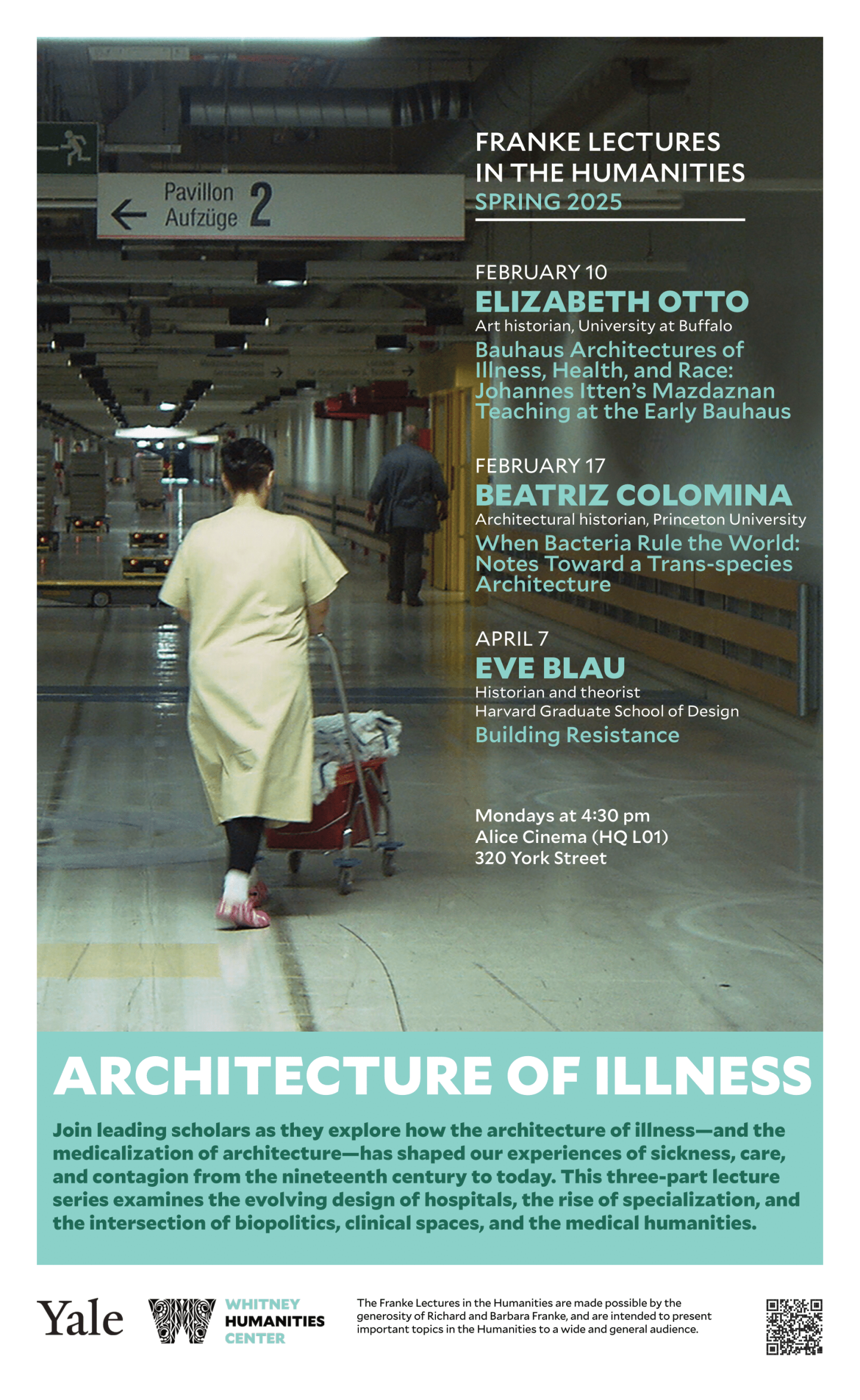When Bacteria Rule the World: Notes Toward a Trans-species Architecture
Speaker Information
Beatriz Colomina is the Howard Crosby Butler Professor of the History of Architecture, the Director of Graduate Studies in the School of Architecture, and the founding director of the Interdisciplinary Media and Modernity program at Princeton University. She writes and curates on questions of design, art, sexuality, and media and her work has been translated in more than 25 languages. Her books include Sexuality and Space (1992), Privacy and Publicity: Modern Architecture as Mass Media (1994), Domesticity at War (2007), Clip/Stamp/Fold (2010), Are We Human? Notes on an Archaeology of Design (2016), X-Ray Architecture (2019), and Radical Pedagogies (2022).


Western architecture has always been understood in terms of the body—more precisely the athletic white male body endlessly redrawn from Renaissance treatises to modern architecture manifestoes, from Leonardo da Vinci to Le Corbusier—a perfected body immersed in geometric systems of proportions—a fiction that excludes most of humanity.
Human-centered design sounds good, but it has been terrible for humans, other species, and the planet. The human is not one thing but an endlessly complex ever changing trans-species collaboration. The human is just a bag of bacteria, and bacteria have been around for billions of years, while the human is a very recent arrival and might already be on the way out. We are nothing without all these foreigners. We live in them more than they live in us.
What would a probiotic architecture be? Probably it would be like our gut, more porous, versus the prophylactic attitude of modern architecture. We used to live intimately with all the bacteria of the soil, the plants and other animals. And we may want to reconnect with this diversity of bacteria, embracing them.
